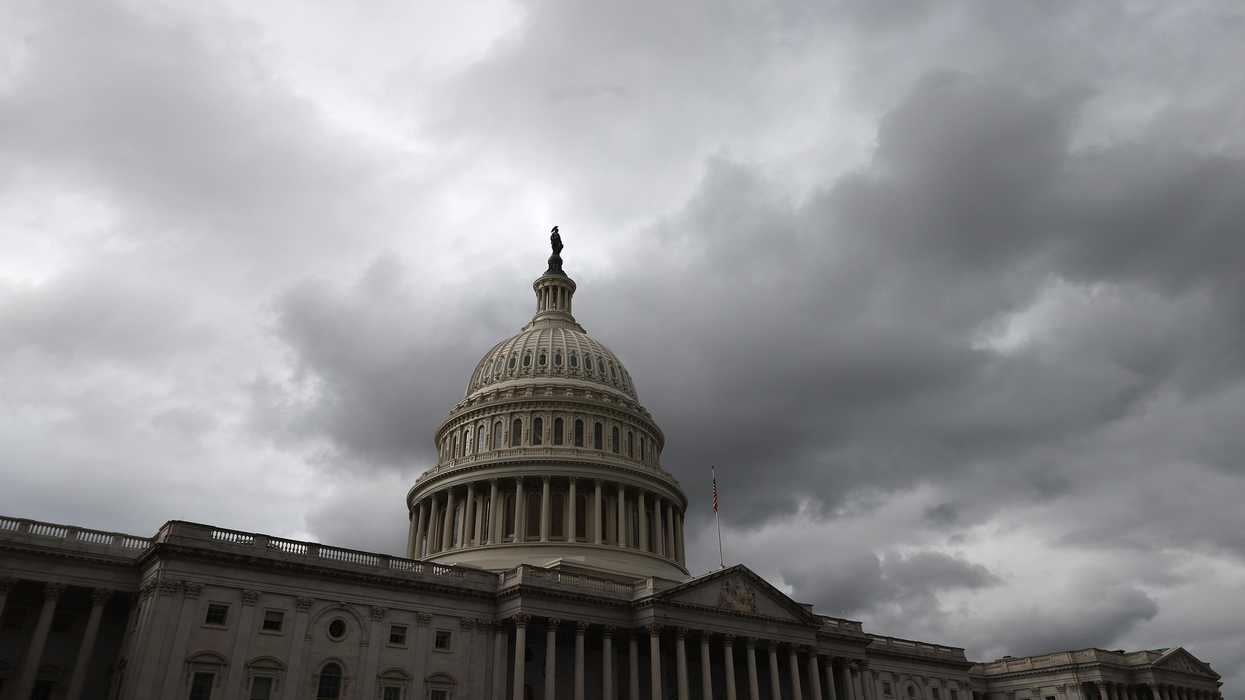Troiano is executive director of Unite America, which promotes an array of electoral reforms and helps finance other advocacy organizations, and political candidates, with a commitment to cross-partisanship. (It is a donor to The Fulcrum.)
The battle over the replacement for the late Justice Ruth Bader Ginsberg represents the next step, albeit a significant one, in a trend of political escalation that threatens the very foundation and functioning of our democracy.
Our political system is caught in a "doom loop" of partisanship and polarization, as both major parties trade long-term institutional stability for short-term political gain in what they rationalize as a fight for the soul of our country.
How America's two-party doom loop is driving divisionwww.youtube.com
If it continues, the doom loop will break our country in half — unless we act to break it first.
Both political parties have played a role in the ongoing tit for tat over judicial confirmations. In 2013, when Democrats controlled the Senate, they invoked the "nuclear option" and eliminated filibusters against lower federal court nominees so they could be confirmed with slim party-line majorities. And the Republicans now in charge are set to up the ante by violating a precedent they set themselves four years ago with regard to considering Supreme Court nominations in presidential election years.
Should Republicans succeed in confirming a new justice this fall, Democrats will feel even more emboldened –– if they win control of the Senate and White House –– to pursue ideas some are already floating, from "packing the court" with additional, and likeminded, justices to packing the Senate itself by admitting the District of Columbia and Puerto Rico as reliably Democratic states.
Then, all bets would be off.
A Republican Party that retains a geographical and political advantage in both the Senate and the Electoral College could surely respond in kind in 2022 and 2024. Nothing, for example, forces the Senate to confirm any president's Supreme Court nominations. Nothing even forces Congress to fund the Supreme Court.
Ultimately, we can only have a democracy if some things matter more than winning power in it. The norm of political forbearance, as Steven Levitsky and Daniel Ziblatt explained in "How Democracies Die" (Crown, 2018), requires self-restraint on the exercise of political power even if one has the legal right to do so. "Democracies cannot work without it," they write. Nor can they long survive.
The doom loop will continue to spiral out of control, if not for the intervention of courageous leaders and different incentives.
The most immediate way to at least slow down the doom loop is for a group of at least eight senators –– four Democrats and four Republicans –– to join as a bloc that can effectively deny either party an outright majority on any norm-busting maneuvers moving forward.
Right now, that could mean: no one confirmed for the Supreme Court before the election, and no court packing after the election. In a new session starting next year, that could mean: new Senate rules that restore deliberation and compromise, including reforming rather than abolishing the filibuster.
The most effective way to actually break the doom loop, however, would be enacting nonpartisan reforms to our electoral system that can fundamentally change governing incentives by increasing political competition, participation and accountability.
Political scientist Lee Drutman, who coined the doom loop phrase, explains: "We are now in an era in which we have two truly distinct national parties, organized around two competing visions of national identity. It works against, not with our political institutions."
Over the last several decades, the two dominant parties have sorted themselves along clearly contrasting dividing lines –– demographically, geographically and ideologically. This stark set of binary splits has reinforced zero-sum politics, in which any kind of compromise is betrayal and the other side is not just wrong but evil.
Politicians have every incentive to raise the stakes even higher in order to get attention, raise campaign money and then win the votes to build their own political power, because most of them are largely insulated within their own parties and only face competition from their respective extremes.
The only way to change how our leaders behave is to change how they are elected.
For example, the most obvious and popular electoral reform, though far from the most powerful, is to end partisan gerrymandering –– thereby creating more competitive districts in which more voters will matter and voters can hold their leaders more accountable. Many states have already implemented independent redistricting commissions, and Congress could act to mandate their use nationally.
There are a range of other reforms –– from eliminating partisan primaries to implementing ranked-choice voting –– that could have an even more powerful impact on the incentives of our leaders. While there is no silver bullet reform, any hope of de-escalating continuing political retribution will require politicians to reconsider how to achieve what is obviously most important to them: how they get elected.
The time for political reform is not after the next big fight; there will always be another to come. The time for reform is now. What hangs in the balance is not a single Supreme Court seat, but the legitimacy of our entire experiment of democratic self-governance.




















